SINCE 2018
Building and tailoring palliative care services for the landlocked kingdom


trained in palliative care services
treated by the Bhutan Home Care team
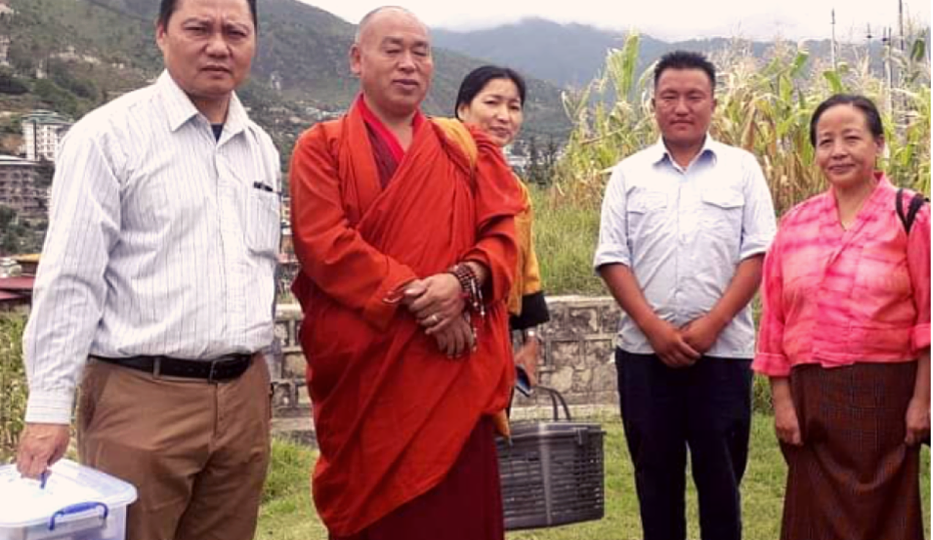
Bhutan Home Care team is a mobile palliative care service that serves the villages in the country’s mountainous rural areas. The team of 3 nurses and 1 doctor are also joined by a lama because seriously ill patients in Bhutan often consult a spiritual leader before seeking medical help.
Life expectancy for Bhutan’s over 770,000 citizens has increased steadily over the years with the country’s economic and social advancements. But its population is also experiencing a growing incidence of death from non-communicable diseases such as cancer. While palliative care can potentially bring relief to the community, especially as cancer in Bhutan is often diagnosed in the later stages when cure is not possible, the medical specialisation is still an emerging field in the country.
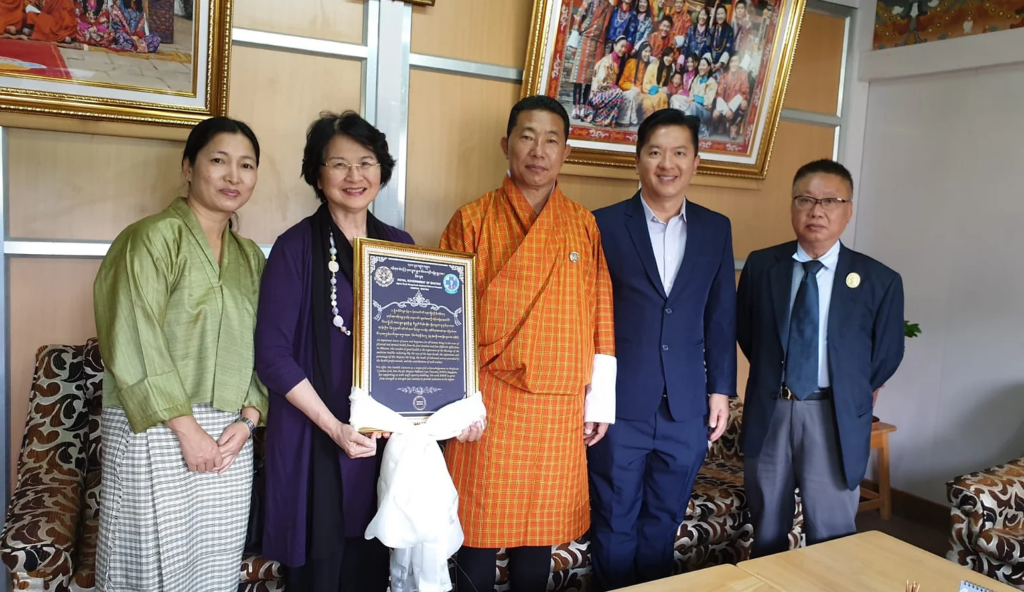
We started working in Bhutan from July 2018 through a partnership with the Jigme Dorji Wangchuck National Referral Hospital (JDWNRH), the main referral hospital in the country’s national healthcare system. The first module of our Train-the-Trainers programme taught 22 participants, and another 23 of them underwent our second module in the following year. Between the modules, the programme supported mentorships and site visits to bolster service development.

In addition to building up the hospital’s palliative care services, our training enabled the establishment of a Bhutan Home Care team. This mobile palliative care service serves the villages in the country’s mountainous rural areas. The team of 3 nurses and 1 doctor are also joined by a lama because seriously ill patients in Bhutan often consult a spiritual leader before seeking medical help. Together, they have served around 576 homecare patients to date—a testament to how our programme can be adapted to each country’s cultures and contexts.
Bhutan’s health ministry has since designated two palliative care specialty positions in JDWNRH. One of them is Dr Kinley Bhuti, who we awarded a bursary to attend a six-month resident specialty training with the National Cancer Centre in Singapore.
A national strategy for palliative care is currently being proposed by JDWNRH to the country’s health ministry. There are also discussions to expand the palliative care training programme through De-suung, Bhutan’s national volunteering initiative.

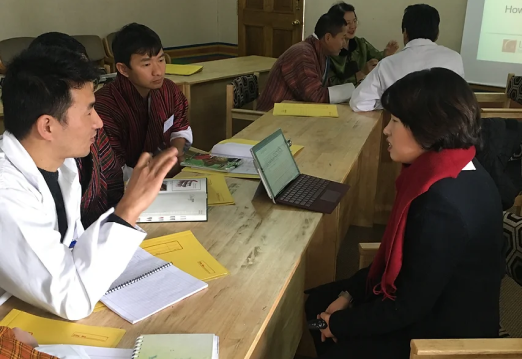
Dr Shirlynn Ho (Singapore)
Dr Jamie Zhou (Singapore)
Jan Philips (Australia)
Sister Nandar Nwe (Bhutan)

A decade-long effort has helped palliative care take root for good

Our largest efforts in palliative care training to date
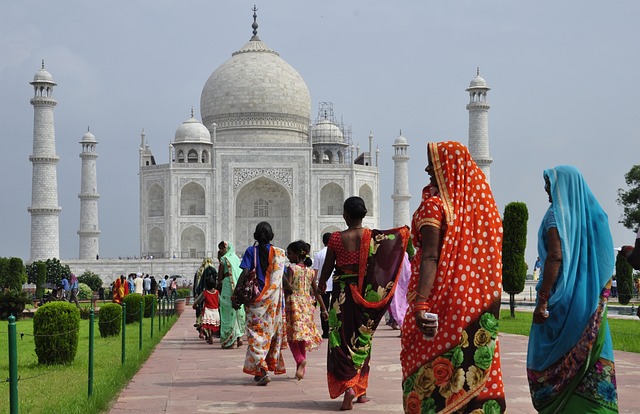
Growing palliative care access in the world’s most populous country

Exploring ways to bring relief to a challenging healthcare system

Our pioneering programme is now independently run by local volunteers
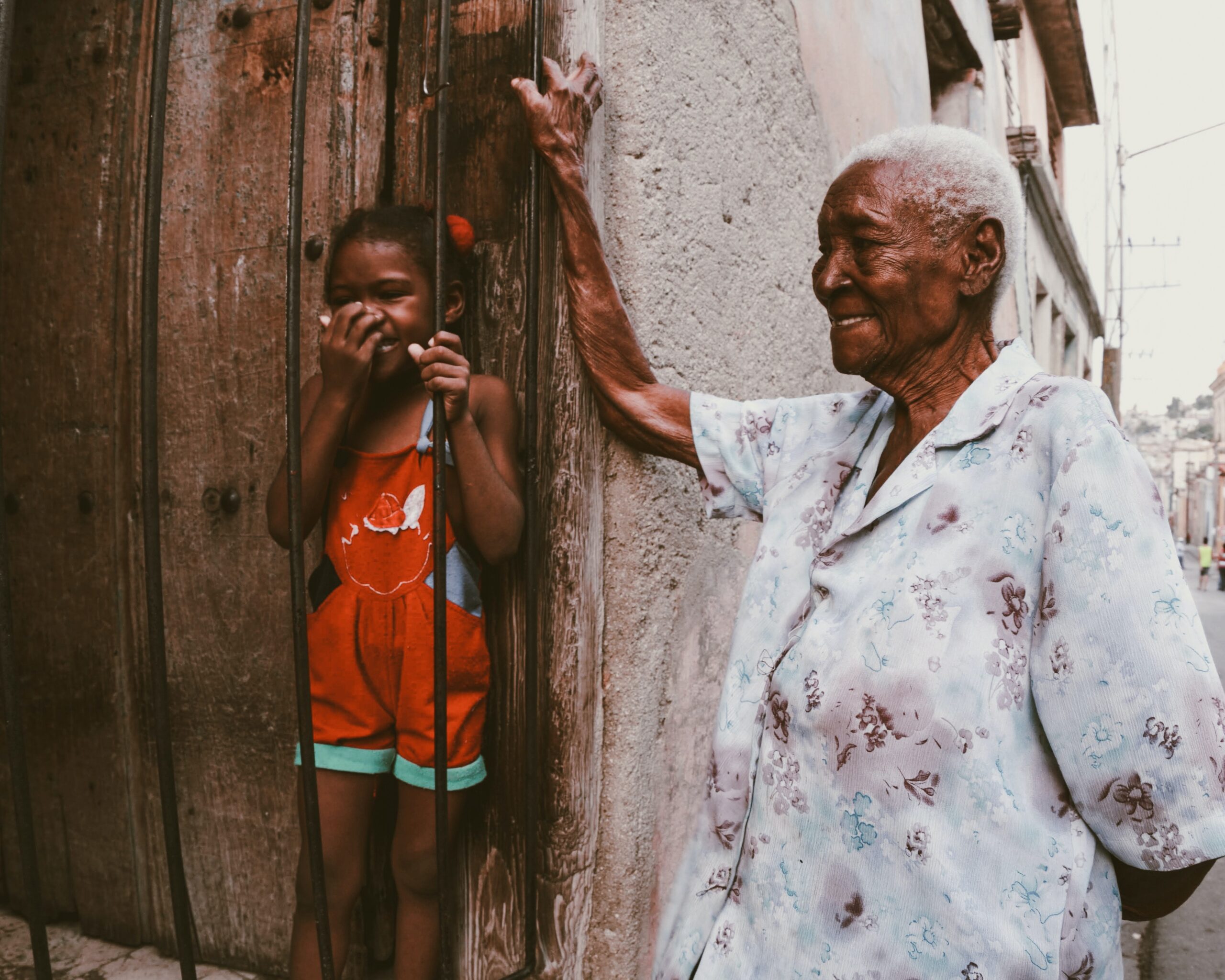
Growing and expanding the nascent network of care

Planting the seeds of palliative care in the largest state of Malaysia
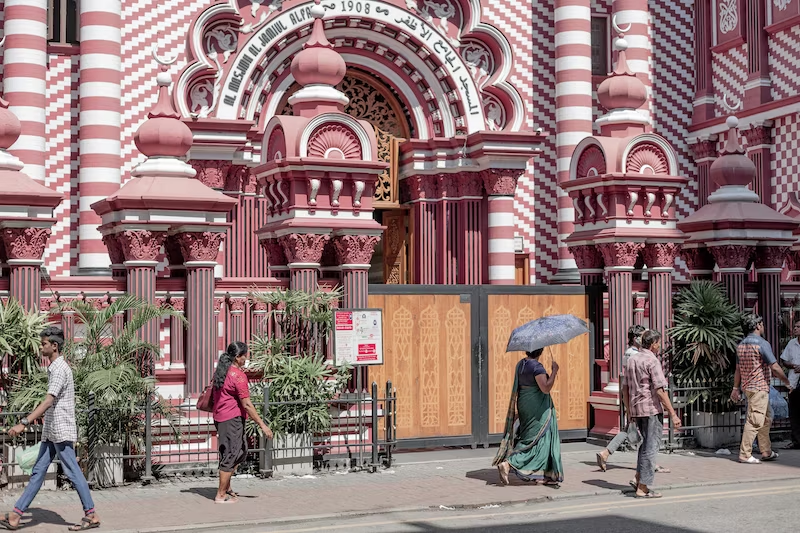
A seed has grown into a system and more

Taking the first steps to introducing palliative care
APHN Secretariat
c/o Division of Supportive & Palliative Care National Cancer Centre Singapore
30 Hospital Boulevard
Singapore 168583
Lien Collaborative for Palliative Care (Lien Collab) draws on philanthropy, health institutions, palliative care service providers, individuals and more to strengthen leadership and capacity in bringing pain relief to all.